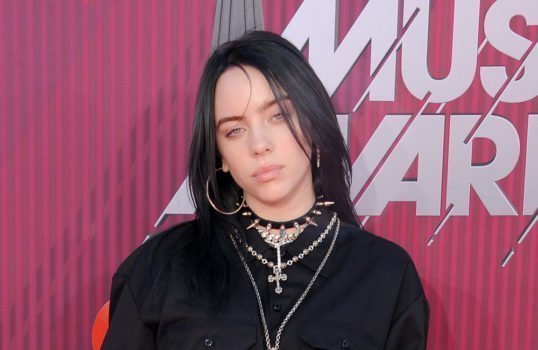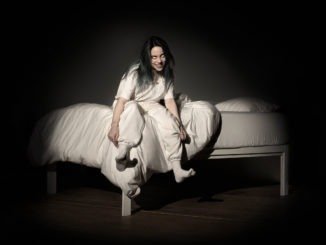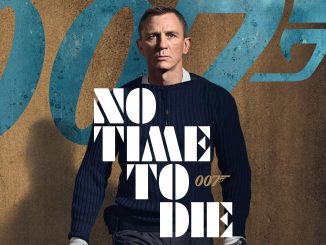Billie Eilish is more than just a pop star; she is a cultural force, a generational icon, and a musical innovator who has redefined what it means to be a global superstar in the 21st century.
At just 23 years old, Eilish has achieved a level of success that most artists can only dream of, amassing billions of streams, sweeping prestigious awards, and a fiercely loyal fanbase that spans the globe behind her. Her rise from a homeschooled teenager in Los Angeles to a household name is a testament to her unique talent, authenticity, and an uncanny ability to connect with her fans on a deeply personal level. Growing up outside a traditional classroom required discipline and curiosity, and that mindset mirrors the focus many students need to do your homework in all subjects while pursuing creative passions.
Her top hits have broken records and redefined pop music, blending genres and emotions in ways that defy categorisation. As she continues to evolve, one thing is sure: Eilish’s impact on music and culture will be felt for decades.
This article will explore Billie Eilish’s groundbreaking entry into the music industry, her early triumphs, her chart-topping hits, and the emotional and cultural figure she is that has made her a voice for a generation.
Breaking into music
Billie Eilish Pirate Baird O’Connell was born on December 18, 2001, into a creative family where her parents, Maggie Baird and Patrick O’Connell, were both actors and musicians. This artistic environment influenced her greatly, and her early beginnings as a singer were not just encouraged but celebrated. Eilish and her older brother, Finneas O’Connell, were homeschooled, allowing her to explore her passions without the constraints of a traditional educational system. From a young age, she started singing in the Los Angeles Children’s Chorus, and by 11, she was writing her songs. However, a serendipitous moment in 2015 launched her into the spotlight, and she has been dancing under the stars since then.
At 13, Eilish recorded “Ocean Eyes,” an ethereal track written and produced by her Grammy award-winning brother, Finneas. The song was initially intended for his band, Slightlys. The siblings uploaded the track to SoundCloud, not expecting much, but a viral explosion followed. The song’s haunting melody and Eilish’s whispery, emotive vocals were a collaboration made in Heaven. It captivated listeners and racked up millions of streams overnight. By 2016, the big names in the industry took notice; she had signed her first music contract with Darkroom and Interscope Records.
Building momentum
Following the success of “Ocean Eyes,” Eilish wasted no time establishing herself as a force to be reckoned with. In 2017, she released her debut EP, “Don’t Smile at Me,” a collection of tracks that solidified her reputation as an artist not afraid to defy the natural order of things music-wise. The EP was co-written and produced by Finneas, who featured in songs like “Bellyache” and “Idontwannabeyouanymore.” Her brother has always been her biggest fan from day one. The sleeper-hit status of the EP saw it peak at number 14 on the US Billboard 200, a remarkable feat from a debut project from a teenager. In addition, the EP’s success was amplified by strategic partnerships, such as Spotify’s promotion on its “Today’s Top Hits” playlist, which introduced her music to a broader audience.
Eilish’s early career was different from the traditional pop star expectations associated with young female artists. She refused to conform to the polished, hyper-sexualized image expected of her at her age. She opted for oversized clothing instead, neon-coloured hair, and a tomboyish aesthetic that challenged societal norms.
This authenticity attracted her to a generation tired of manufactured personas, and her music, a blend of pop, hip-hop, and electronic elements, was just refreshing. By 2018, she collaborated with artists such as Vince Staples on “&Burn” and performed in small but sold-out venues. Eilish was not just a rising star; she was slowly building a movement.
Top hits, musical achievements, and grossing records
The nine-time Grammy Award winner has a discography that attests to her versatility and ability to write songs that dominate the charts and the hearts of many. Her breakthrough single, “Bad Guy,” from her 2019 debut album “When We All Fall Asleep, Where Do We Go?,” is perhaps the most iconic example. The track’s pulsating bassline, playful lyrics, and Eilish’s signature half-whispered delivery, “Bad Guy,” quickly became a global sensation.
Also, it topped the US Billboard Hot 100 and was certified Diamond by the RIAA. Furthermore, “Bad Guy” made her the first artist born in the 21st century to have a number-one single on the chart. IFPI recognized the song’s 19.5 million units sold worldwide in 2019 as the biggest-selling single globally. Eilish won Grammy Awards for “Record of the Year” and “Song of the Year” for “Bad Guy” in 2020.
Another standout track is “Everything I Wanted,” released later in 2019 as a standalone single. It was an introspective track inspired by Eilish’s bond with Finneas and her struggles with fame. Eilish struck a chord with listeners with this track as she expressed issues about mental health. “Everything I Wanted” peaked at number 8 on the Billboard Hot 100, garnered 1.5 billion streams on Spotify alone and earned a Grammy for “Record of the Year” in 2021. In addition, the song achieved a rare feat in the pop landscape; its emotional authenticity and balanced commercial appeal were the main success of the track.
The American singer showcased a dramatic evolution in her sound on the title track of her 2021 album “Happier Than Ever.” The soft, folk-inspired ballad crescendos into an explosive rock anthem, with Eilish unleashing her frustration about toxic relationships. Its raw energy and genre-blending structure earned critical acclaim, while its music video, directed by Eilish herself, garnered over 300 million views on YouTube, reinforcing her as a multimedia powerhouse. “Happier Than Ever” reached number 11 on the Billboard Hot 100 and topped the charts in several countries, including Ireland and New Zealand.
Eilish’s contribution to the 2023 “Barbie” soundtrack, “What Was I Made For?,” further highlighted her knack for creating hits. This delicate, piano-driven ballad, co-written with Finneas, explores existential longing and becomes the tear-jerking centrepiece of the film. It hit number 14 on the Billboard Hot 100, topped the UK Singles Chart, and won her a second Academy Award for “Best Original Song” in 2024, a Grammy, and a Golden Globe.
The 22-year-old solidified her reign atop the charts with “Birds of a Feather” from her 2024 album “Hit Me Hard and Soft.” The track’s shimmering synth-pop anthem about love and loss soared to number 1 on the Billboard Global 200 and peaked at number 2 on the Hot 100. Its infectious melody and heartfelt lyrics drove it to over 1 billion streams, while its critical triumph underscored Eilish’s continued growth as an artist.
These hits have contributed to her staggering 76.7 billion career streams worldwide as of 2021, a number that has only grown with her subsequent releases. Eilish’s career is a testament to expressing your passions while maintaining who you are without conforming to social influences.
Fan connection
Billie Eilish’s popularity is not just about numbers but also about the profound connection she has forged with her fans. Her music mirrors the struggles of her generation: mental health, identity, and the pressures of growing up in a digital age. Songs like “When the Party’s Over” and “Bury a Friend” confront anxiety and depression with unflinching honesty, offering solace to fans who feel seen in her music. Eilish is also open about her experiences with Tourette syndrome, synaesthesia, and past depression. This has further deepened the bond, making her a relatable figure rather than an untouchable celebrity.
Her rejection of traditional standards for beauty also plays a pivotal role in her relationship with her fans. By embracing baggy clothes and a non-conformist style, Eilish challenges the hypersexualization of women in entertainment, empowering her fans to prioritize self-expression over societal expressions. This stance has earned her a devoted following, often dubbed “Eilishers.” They see her as a symbol of authenticity in an industry rife with artifice.
The sibling dynamism between Eilish and her brother Finneas adds a layer of intimacy to her work. Their collaborations, writing and recording songs in their childhood home, infuse her music with a raw, homemade quality that feels personal and unfiltered. This resonates with a generation raised on the internet, where creativity thrives outside traditional gatekeepers. Her activism, from advocating for climate change awareness to supporting body positivity, further aligns her with the value of her fans, who prize artists with a purpose beyond entertainment.
Eilish’s live performances are a cornerstone of her meteoric rise and a vivid testament to her profound connection with her fans. During her “Don’t Smile at Me” tour in 2017, she performed in small venues like Los Angeles’ El Rey Theatre, where her proximity to the crowd allowed for an intimate exchange of energy with fans who were lucky enough to get hold of Billie Eilish tickets for the events.
Fans sang every word to tracks like “Ocean Eyes” and “Bellyache,” their voices often overpowering hers; this she encourages with grins and playful banter. This is not the polished choreography of a typical pop star; it was chaotic, unscripted, and honest, with Eilish leaping into the crowd, crowd-surfing, or pausing to check on fans who seemed overwhelmed. Her willingness to break the fourth wall shattered the traditional artist-audience divide, fostering a sense of unity that felt more like a gathering of friends than a concert.





Be the first to comment